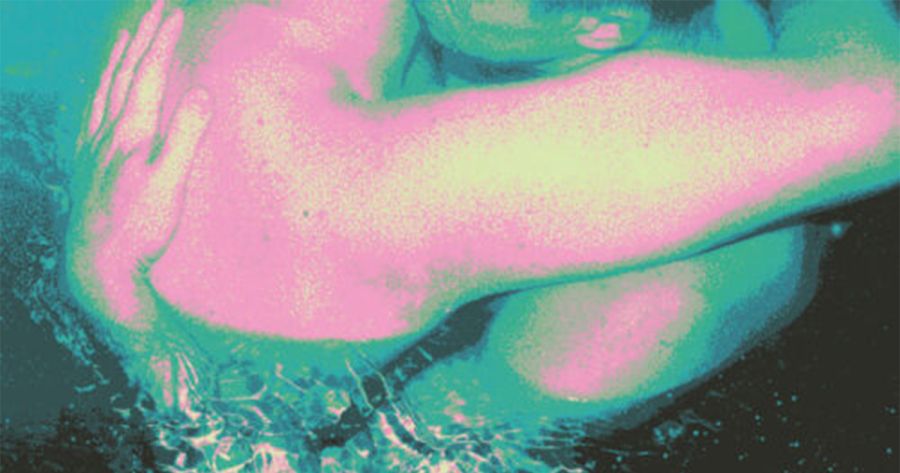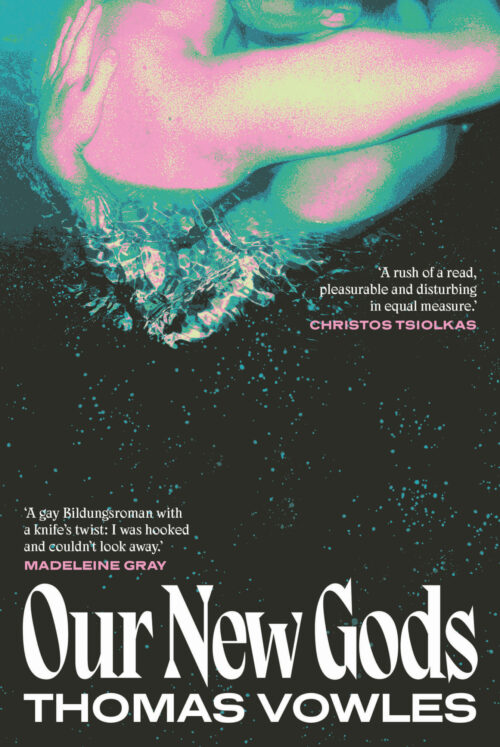
- Free Article: No
- Contents Category: Fiction
- Review Article: Yes
- Article Title: Seriously afflicted
- Article Subtitle: An Inner North gay thriller
- Online Only: No
- Custom Highlight Text:
Billing itself as a ‘gay Bildungsroman’, Thomas Vowles’s Our New Gods follows Ash, a young man with a dark past, in his move from rural Western Australia to the ultra-hip enclaves of Melbourne’s Inner North. Ash immerses himself in the city’s queer scene and soon finds himself in a viper’s nest of sexual and emotional entanglements. First up is his new friend James, a rich blond Adonis; James is in an open relationship with the volatile Raf; Raf has a connection with a troubled soul called Booth.
- Book 1 Title: Our New Gods
- Book 1 Biblio: University of Queensland Press, $34.99 pb, 256 pp
- Book 1 Cover Small (400 x 600):

- Book 1 Cover (800 x 1200):

- Book 1 Readings Link: https://www.readings.com.au/product/9780702268939/our-new-gods--thomas-vowles--2025--9780702268939#rac:jokjjzr6ly9m
This quartet drives the novel’s action. Ash is in love with James and becomes obsessed with the notion that Raf is hiding secrets that relate in some way to Booth. A noir plot develops involving surveillance and disappearances. The setting is authentically realised: the drug-saturated parties in ramshackle terraces, the Dionysian bush doofs, the public pools and gay saunas.
Vowles’s début is a potpourri of influences. It recalls Helen Garner’s Monkey Grip (1977), with its sun-blasted days at the Fitzroy Pool and share house commingling, as well as Patricia Highsmith’s The Talented Mr. Ripley (1955), with its inscrutable central character. There are echoes of Bret Easton Ellis’s stories of glamorous hedonism and Christos Tsiolkas’s pugilistic sex scenes.
Vowles, a screenwriter, seems primarily inspired by cinema. The clearest influence is Alan Guiraudie’s Stranger by the Lake (2013), an erotic thriller centred on an isolated cruising spot in France. That film found menace within the sexual rituals of queer life: when Michel (Christophe Paou) emerges mermaid-like from the lake, Franck (Pierre Deladonchamps) regards him with a mixture of fear and desire, unsure whether the beautiful creature glittering in the summer sun will make love to or murder him.
In Our New Gods, Vowles captures some of Stranger’s intoxicating atmosphere in tracing the psychology of Ash, which is revealed most successfully when the character is in solitude. Ash experiences a tumult of emotions, whipsawing from excitement to paranoia to bitter disillusionment, sometimes in the space of a page. There are several very effective scenes – including a tense extended chase sequence at a gay sauna – that demonstrate Vowles’s strengths as a suspense writer.
Setting aside its study of Ash, Our New Gods is not a novel filled with detailed psychological portraits; Vowles’s focus is more anatomical, concerned as it is with the poisonous allure of male beauty. Raf, the ‘oil-painting Jesus’ from Brazil, is sexily dangerous with his anger issues, his ‘provocative yet shy’ body, described as ‘taut and glowing’. James is sexily mysterious, a calculating, withholding man with ‘floppy blonde hair’ and a lean physique that Ash notes is ‘on another level’. Booth is sexily vulnerable, ‘fragile in the most beautiful way’, with his ‘soft, buttery voice’ and dreamy detachment. Even Ash, our self-conscious protagonist, is revealed to be seriously afflicted with sexiness: ‘When I saw you at the memorial, I thought, that gorgeous young man and I are supposed to meet.’
The novel is preoccupied with the costs of erotic obsession. Though Eros is an animating force in the narrative, sex is rarely a source of intimacy; more often it is wielded cruelly, as a pleasurable tool of manipulation that the characters use to gain advantage over one another. Sex is one of the most challenging human experiences to convey in fiction and Vowles writes about it uncommonly well. These scenes are powerful and disturbing – a shocking one that occurs late in the novel is a highlight (of sorts). John Updike put it best: ‘Sex, too, can be sticky, and it reeks of bewitchment.’
Outside these striking moments of sex and solitude, Our New Gods is at times incoherent. Thanatos, when it arrives, is less compelling than Eros. It is as though Vowles doubts that his audience will find the human dynamics interesting and so adds implausibly motivated scenes of violence. Domestic violence is a reality in many queer relationships; the 2024 Lamarre-Condon killings loom over this text. It is disquieting to recall real-world tragedies when reading Vowles, given the pulpiness of his sensibility. The novel’s violence is both lurid and ludicrous, more the result of genre contrivance than organic occurrence.
Our New Gods disappoints in other respects. It exhibits a problem which has plagued millennial novels since Sally Rooney unleashed her imitable style on the world: somewhat affectless dialogue, shorn of quotation marks, skewed towards the declarative statement:
It’s a lot, man, he said. It’s … a lot. Like a lot.
Yes. I fucking know …
What? I said.
Sassy, he replied.
While this is a good approximation of real speech, with its fragments and repetitions, it is not always engaging. Vowles is on stronger ground when he returns to the hothouse of Ash’s interior life, his fantasies and dreams, the paranoid observations of the surrounding environment. The narrative gathers strength and urgency as it builds to a climax, casting an unsettling pall that lingers.
One might be left wondering who, exactly, are the ‘new gods’ of the title. Are they the fixations of queer culture? Or is it the love objects, the source of obsession, the thing that causes one to transgress? James is referred to as ‘the mystery … that is the benediction within everything’. Another option could be the feverish pursuit of Bacchanalian pleasure. There is an evocative metaphor in the form of a dream that Ash has of his childhood home, which contained a yawning, ever-expanding hole in the middle of the floor. Into this absence, this maw, a space is open for new idols to exert their malign influence.
Our New Gods is gripping and without tenderness, with its cycles of betrayals, its savage uncouplings and recouplings. It is a glimpse into the human heart, which finds something cold and unpleasant lurking inside.


Comments powered by CComment